#Azure DevOps Security
Explore tagged Tumblr posts
Text
Secure and Scalable Cloud Server Management at Atcuality
For businesses seeking to enhance scalability and maintain top-tier security, Atcuality provides unparalleled cloud server management services. Our solutions cover all aspects of cloud server maintenance, including load balancing, patch management, data backups, and disaster recovery planning. Our experienced professionals work with cutting-edge tools to ensure that your servers are secure, efficient, and scalable to meet changing business needs. Whether you operate in e-commerce, finance, or technology, we tailor our services to align with your operational goals. With Atcuality as your trusted partner, you can focus on driving growth while we handle the technical complexities of cloud management.
#seo marketing#seo services#artificial intelligence#azure cloud services#seo agency#digital marketing#seo company#iot applications#ai powered application#amazon web services#ai applications#virtual reality#augmented reality agency#augmented human c4 621#augmented and virtual reality market#augmented intelligence#augmented reality#cloud security services#cloud computing#cloud services#cloud service provider#cloud server hosting#software#devops#information technology#cash collection application#task management#blockchain#web developing company#web development
2 notes
·
View notes
Text
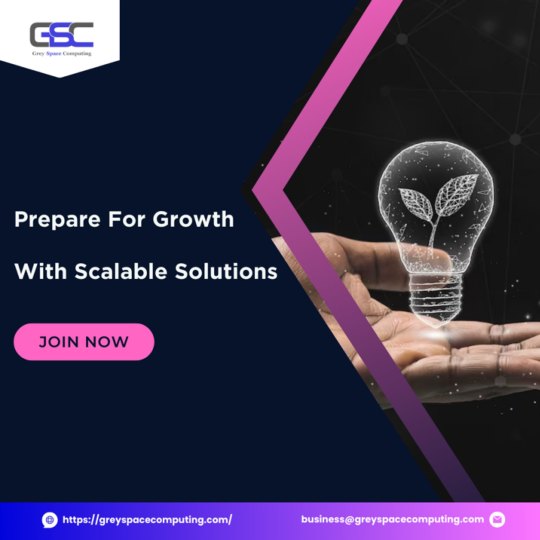
Growth is exciting, but only if your app can handle it! Cloud technology ensures your app scales effortlessly to meet increasing demand. 📈 Get ready for success! 🔗Learn more: https://greyspacecomputing.com/custom-mobile-application-development-services/ 📧 Visit: https://greyspacecomputing.com/portfolio
#GreySpaceComputing#CloudTech#AppScalability#cloudcomputing#cloud#technology#cybersecurity#aws#bigdata#devops#it#datacenter#azure#cloudstorage#linux#programming#software#tech#iot#cloudservices#coding#cloudsecurity#machinelearning#informationtechnology#datascience#business#python#security#microsoft#dataprotection
2 notes
·
View notes
Text
When re-building your application, Which option do you have that gives optimum performance in Cloud?
#technology#automation#aws cloud#gitlab#aws#google cloud#microsoft azure#startup#cloud migration#cloud services#cloud service provider#cloud security#startups#devops#devopsengineer#devsecops
0 notes
Text
Optimizing Azure Container App Deployments: Best Practices for Pipelines & Security
🚀 Just shared a new blog on boosting Azure Container App deployments! Dive into best practices for Continuous Deployment, choosing the right agents, and securely managing variables. Perfect for making updates smoother and safer!
In the fifth part of our series, we explored how Continuous Deployment (CD) pipelines and revisions bring efficiency to Azure Container Apps. From quicker feature rollouts to minimal downtime, CD ensures that you’re not just deploying updates but doing it confidently. Now, let’s take it a step further by optimizing deployments using Azure Pipelines. In this part, we’ll dive into the nuts and…
#Agent Configuration#app deployment#Azure Container Apps#Azure Pipelines#CI/CD#Cloud Applications#Cloud Security#continuous deployment#Deployment Best Practices#DevOps#microsoft azure#Pipeline Automation#Secure Variables
0 notes
Text
0 notes
Text
Seamless Transition and Enhanced Support: TekLink’s Success Story

In the dynamic world of technology, businesses constantly seek ways to optimize their operations and enhance efficiency. One critical aspect is the seamless transition of IT responsibilities, ensuring uninterrupted support and continued improvements. In a recent collaboration, the TekLink Team successfully replaced an onsite Architect with an offshore resource for a client, offering robust support and enhancements. This blog delves into the structured process employed by the TekLink Team, highlighting the critical services provided and the substantial benefits achieved.
The Transition Process:
Knowledge Transition:
The foundation of any successful transition lies in the effective transfer of knowledge. The TekLink Team meticulously prepared Knowledge Transition topics and content from the onsite resource, ensuring the offshore resource was well-equipped to take on the responsibilities seamlessly.
Advisory Role for Azure Services:
TekLink didn’t just replace roles; they elevated them. The team provided an advisory role for supporting and fine-tuning Azure services, showcasing their expertise in cloud solutions and commitment to optimizing the client’s infrastructure.
Comprehensive Azure Platform Services:
Offering more than just basic support, TekLink provided Architecture, Administration, and Trouble-shooting services for the Azure platform. This comprehensive approach ensured that every aspect of the client’s cloud environment was meticulously managed.
End-User Support and Landscape Enhancement:
Beyond technical aspects, the TekLink Team extended their support to end-user requests and the enhancement of the existing landscape. This client-centric approach showcased their commitment to meeting business needs and user satisfaction.
Azure Platform Security Administration:
Recognizing the paramount importance of security in the digital landscape, TekLink took charge of Azure Platform Security Administration, aligning IT security processes with the business’s specific needs.
On-Premise System Administration:
TekLink didn’t limit its expertise to the cloud; it also provided Server Administration for on-premises systems. This included patching, upgrades, reporting/analytics, and gateway services, ensuring a holistic approach to IT management.
Optimizing Outage Window:
A crucial aspect of server administration is minimizing downtime. TekLink provided solutions for patching servers, optimizing outage windows, and ensuring the client’s operations ran smoothly without significant disruptions.
SoX Policies for BI Applications:
Compliance is key in today’s regulatory environment. TekLink implemented and supported Sarbanes-Oxley (SoX) policies for BI applications, ensuring that the client’s business intelligence processes adhered to industry standards.
24x7x365 On-Call Support:
Recognizing the importance of continuous support, TekLink offered round-the-clock on-call support, providing the client with peace of mind and immediate assistance whenever needed.
Monitoring and Support for Application and DevOps Teams:
Utilizing advanced tools, TekLink performed monitoring, optimization, and troubleshooting for both the Application and DevOps teams. This proactive approach ensured potential issues were identified and resolved before they could impact operations.
The Benefits:
The TekLink Team’s comprehensive approach to the client’s needs resulted in a range of substantial benefits:
Aligned IT Security Processes:
The transition aligned IT security processes with the client’s specific business needs, ensuring a robust and customized security framework.
Role-Based Application Security:
TekLink implemented role-based application security for both SAP and cloud applications, enhancing the overall security posture of the client’s digital landscape.
Corporate Audit Requirements:
The application security measures implemented were in accordance with corporate audit requirements, demonstrating TekLink’s commitment to compliance and accountability.
Conclusion:
The TekLink Team’s successful transition and ongoing support for the client exemplify their commitment to excellence and client satisfaction. By providing a comprehensive set of services and aligning IT processes with business needs, TekLink has met the client’s expectations and set a benchmark for seamless IT transitions in the industry. This case study is a testament to the importance of strategic planning, expertise, and a client-centric approach in ensuring the success of IT initiatives. For more information, visit https://teklink.com/knowledge-center/seamless-transition-and-enhanced-support-teklinks-success-story/
0 notes
Text
Understanding Azure Information Protection Premium P1

Azure Information Protection Premium P1 is a comprehensive facts protection solution designed to assist organizations in classifying, labeling, and protecting touchy data. It offers many capabilities that empower businesses to control and display their statistics, ensuring that private records stay stable, whether or not they’re saved locally or within the cloud.
Azure Information Protection Premium P1 provides a comprehensive set of capabilities to safeguard sensitive data within an organization.
AVAIL FREE ASSESSMENT
#azure ai#microsoft azure partner#azure desktop as a service#managed it services#government managed services#azure services#azure#microsoft azure#azure devops#cyber security#microsoft services
1 note
·
View note
Text
Driving Innovation: A Case Study on DevOps Implementation in BFSI Domain
Banking, Financial Services, and Insurance (BFSI), technology plays a pivotal role in driving innovation, efficiency, and customer satisfaction. However, for one BFSI company, the journey toward digital excellence was fraught with challenges in its software development and maintenance processes. With a diverse portfolio of applications and a significant portion outsourced to external vendors, the company grappled with inefficiencies that threatened its operational agility and competitiveness. Identified within this portfolio were 15 core applications deemed critical to the company’s operations, highlighting the urgency for transformative action.
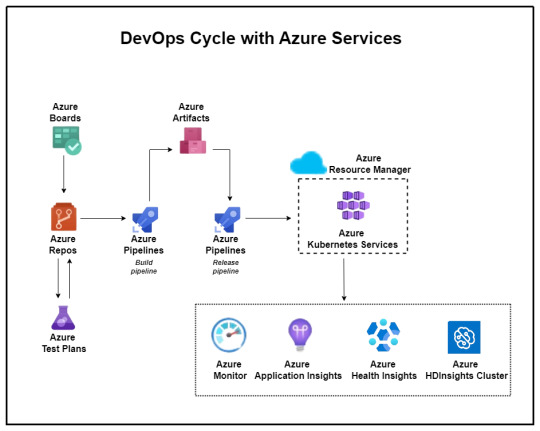
Aspirations for the Future:
Looking ahead, the company envisioned a future state characterized by the establishment of a matured DevSecOps environment. This encompassed several key objectives:
Near-zero Touch Pipeline: Automating product development processes for infrastructure provisioning, application builds, deployments, and configuration changes.
Matured Source-code Management: Implementing robust source-code management processes, complete with review gates, to uphold quality standards.
Defined and Repeatable Release Process: Instituting a standardized release process fortified with quality and security gates to minimize deployment failures and bug leakage.
Modernization: Embracing the latest technological advancements to drive innovation and efficiency.
Common Processes Among Vendors: Establishing standardized processes to enhance understanding and control over the software development lifecycle (SDLC) across different vendors.
Challenges Along the Way:
The path to realizing this vision was beset with challenges, including:
Lack of Source Code Management
Absence of Documentation
Lack of Common Processes
Missing CI/CD and Automated Testing
No Branching and Merging Strategy
Inconsistent Sprint Execution
These challenges collectively hindered the company’s ability to achieve optimal software development, maintenance, and deployment processes. They underscored the critical need for foundational practices such as source code management, documentation, and standardized processes to be addressed comprehensively.
Proposed Solutions:
To overcome these obstacles and pave the way for transformation, the company proposed a phased implementation approach:
Stage 1: Implement Basic DevOps: Commencing with the implementation of fundamental DevOps practices, including source code management and CI/CD processes, for a select group of applications.
Stage 2: Modernization: Progressing towards a more advanced stage involving microservices architecture, test automation, security enhancements, and comprehensive monitoring.
To Expand Your Awareness: https://devopsenabler.com/contact-us
Injecting Security into the SDLC:
Recognizing the paramount importance of security, dedicated measures were introduced to fortify the software development lifecycle. These encompassed:
Security by Design
Secure Coding Practices
Static and Dynamic Application Security Testing (SAST/DAST)
Software Component Analysis
Security Operations
Realizing the Outcomes:
The proposed solution yielded promising outcomes aligned closely with the company’s future aspirations. Leveraging Microsoft Azure’s DevOps capabilities, the company witnessed:
Establishment of common processes and enhanced visibility across different vendors.
Implementation of Azure DevOps for organized version control, sprint planning, and streamlined workflows.
Automation of builds, deployments, and infrastructure provisioning through Azure Pipelines and Automation.
Improved code quality, security, and release management processes.
Transition to microservices architecture and comprehensive monitoring using Azure services.
The BFSI company embarked on a transformative journey towards establishing a matured DevSecOps environment. This journey, marked by challenges and triumphs, underscores the critical importance of innovation and adaptability in today’s rapidly evolving technological landscape. As the company continues to evolve and innovate, the adoption of DevSecOps principles will serve as a cornerstone in driving efficiency, security, and ultimately, the delivery of superior customer experiences in the dynamic realm of BFSI.
Contact Information:
Phone: 080-28473200 / +91 8880 38 18 58
Email: [email protected]
Address: DevOps Enabler & Co, 2nd Floor, F86 Building, ITI Limited, Doorvaninagar, Bangalore 560016.
#BFSI#DevSecOps#software development#maintenance#technology stack#source code management#CI/CD#automated testing#DevOps#microservices#security#Azure DevOps#infrastructure as code#ARM templates#code quality#release management#Kubernetes#testing automation#monitoring#security incident response#project management#agile methodology#software engineering
0 notes
Text
Certification Exam Center | PMP CISA CISM Oracle CCNA AWS GCP Azure ITIL Salesforce Institute in Pune

The Certification Exam Center in Pune offers a range of certification exams for professionals in the IT industry. These certifications are highly valued and recognized worldwide, and passing them can significantly enhance one's career prospects. The center offers exams for a variety of certifications, including PMP, CISA, CISM, Oracle, CCNA, AWS, GCP, Azure, ITIL, and Salesforce Institute. The center provides a convenient and comfortable environment for taking the exams. It has state-of-the-art facilities and equipment to ensure that candidates have a smooth and hassle-free experience during the exam. The exam rooms are spacious and well-lit, with comfortable seating arrangements and noise-cancelling headphones to help candidates.
Visit: https://www.certificationscenter.com/top-certifications
Address: SR N 48, OFFICE NUMBER 009 1ST FLOOR, EXAM CENTER, CERTIFICATION, Lane No. 4, Sai Nagari, Mathura Nagar, Wadgaon Sheri, Pune, Maharashtra 411014
Business Phone: 91020 02147
Business Category: Software Training Institute
Business Hours: 8am-8pm Monday to Sunday
Business Email: [email protected]
Payment Method: Paypal, Local Bank Wire Transfer
Social links:
https://www.facebook.com/certificationscenter
https://twitter.com/cert_center
https://www.youtube.com/@certificationcenter
https://www.linkedin.com/company/it-certification-exam-and-preparation-center
#Linux Training#Aws Training#Cyber security Training#Ethical Hacking Training#RHLS Cost#DevOps Training#Azure Training#RHCSA Training#OpenShift Training#Networking Training#CCNA Training#CEH Training#GCP Training#Cloud Security Training#OSCP Training
1 note
·
View note
Text
OWASP ZAP Security Tests in Azure DevOps
Hello everyone! Welcome to pentestguy. In this post we are going to discuss about how to configure owasp zap in azure devops pipeline for penetration/security testing automation. Adding security tests stage with owasp zap in azure devops pipeline or any other one will be helpful in continuous delivery process smoothly. Make sure that you have azure devops account created or using the existing…

View On WordPress
#owasp zap#owasp zap docker#owasp zap in azure devops#owasptonuint3#pentestguy#security testing pipeline
0 notes
Text

Experience the perfect blend of speed, reliability, and scalability with cloud technology. ⚡ Elevate your app’s performance and keep users coming back for more! 🔗Learn more: https://greyspacecomputing.com/custom-mobile-application-development-services/ 📧 Visit: https://greyspacecomputing.com/portfolio
#GreySpaceComputing#CloudTech#AppScalability#cloudcomputing#cloud#technology#cybersecurity#aws#bigdata#devops#it#datacenter#azure#cloudstorage#linux#programming#software#tech#iot#cloudservices#coding#cloudsecurity#machinelearning#informationtechnology#datascience#business#python#security#microsoft#dataprotection
1 note
·
View note
Text
How to Configure an Azure DevOps self hosted Pipeline Agent
Azure DevOps is a tool you can use, for free (with an existing business subscription) that allows you to do a lot of things:
Store code in git repos
Plan projects with a kanban style board
Automate deployments with pipelines
The third option is the most interesting. When you push your code to the repo in Azure DevOps, you can set up a pipeline that will automatically take that code and execute steps you define to deploy it.
An example would be my use case. I write a Terraform plan on my iPad, push it to the Azure DevOps git repo, and the pipeline takes that code and uses it to deploy a new virtual machine on the server in my living room.
Pipeline Punch
Pipelines are not free. You do get some free pipeline hours of execution every month, but if you go over the allotted free tier values it gets very expensive.
One solution to this is to host your own pipeline and connect it to Azure DevOps. This means that instead of paying Microsoft to run this code, you have your own server that does it. This has a few benefits:
You can customize your server’s software
You can customize your server’s connectivity (such as a VPN that connects it to your house!)
You have control over every aspect of the pipeline, and can configure it to your needs!
The pipeline agent doesn’t have to be anything super powerful, depending on what you’re doing. But you can beef it up if you need more power, or you can slim it down to the minimum if you just need something lightweight.
I chose to run my pipeline agent on Digital Ocean. I will now go over the process of configuring a self hosted pipeline agent.
Setting up your own Custom Agent
First, you need a Linux server. I’m using Ubuntu 22.04 hosted on Digital Ocean for $6/month. This guide assumes you know how to install and configure a Linux server, so we won’t be covering that here.
The process is pretty simple. Let’s set up Azure DevOps.
First you will need to navigate to your Azure DevOps instance and click the settings icon in the bottom left hand corner of the screen.
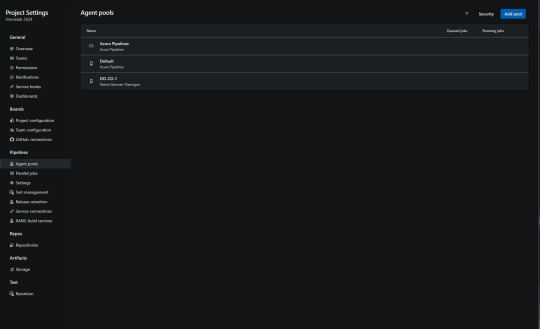
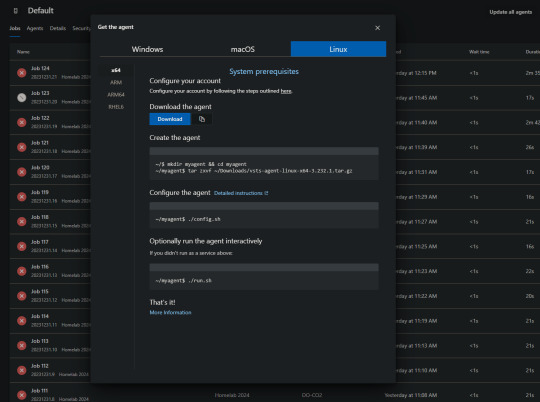
You will then be able to download the agent, or copy the link. If you copy the link, you can simply download the agent on your Linux sever using the wget command. wget https://vstsagentpackage.azureedge.net/agent/3.232.1/vsts-agent-linux-x64-3.232.1.tar.gz
You will need to do all of this from a non-root user with sudo permissions.
Next execute these commands to set up the server.mkdir myagent && cd myagent tar zxvf ~/Downloads/vsts-agent-linux-x64-3.232.1.tar.gz
Now you will need to configure your personal access token in Azure DevOps. This PAT is going to be the password that allows your agent to receive code and commands from Azure DevOps.
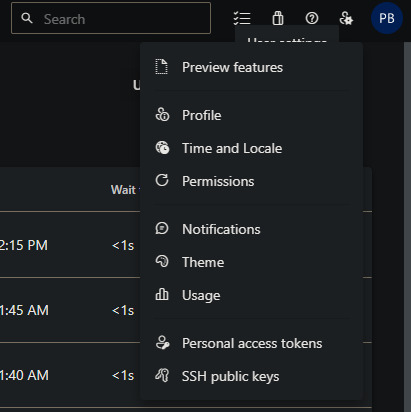
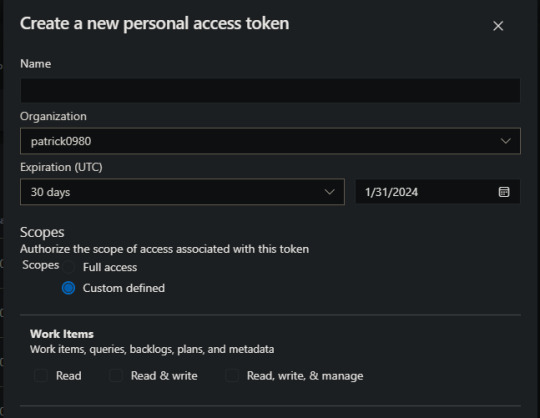
Note that a PAT will expire after a set amount of time you can define. You can set it to never expire, but you really shouldn’t.
Take a note of your PAT, you won’t be able to see it again after this. Also, take a note of your DevOps URL, it should look like dev.azure.com/patrick0980
Next, connect to your pipeline agent server over SSH. You will run the following commands.cd myagent ./config.sh
This will guide you through the install process. You will be asked for your DevOps URL and PAT, so have those ready.
Once you’ve finished filling out the forum for the installer, it will be present on your system. We’re almost there!
The last thing we need to do is configure the pipeline agent to operate as a systemd service. This will allow it to run in the background on the server, so we won’t have to manually invoke it. To do that you will run the “svc.sh” script in the same directory you were just in../svc.sh

Conclusion
Azure DevOps is a great tool you can utilize to really automate a lot of things. The possibilities are endless – and you don’t have to pay an extra penny for it! I hope you found this guide useful and hope to make more content for you soon.
Have a great rest of your day!
0 notes
Text

Cloud computing has redefined how businesses are staying ahead of the competition by using the latest innovations while keeping the costs low. It is one of the ideas that has led to a huge paradigm shift in business processes across various industries but the industry that has benefitted the most from it is the very industry that created it – IT – Information Technology industry.
#cloudcomputing#cloud#technology#devops#it#azure#cloudstorage#programming#software#tech#iot#cloudservices#coding#cloudsecurity#machinelearning#informationtechnology#datascience#business#python#security#microsoft#dataprotection#networksecurity#data#artificialintelligence
1 note
·
View note
Text
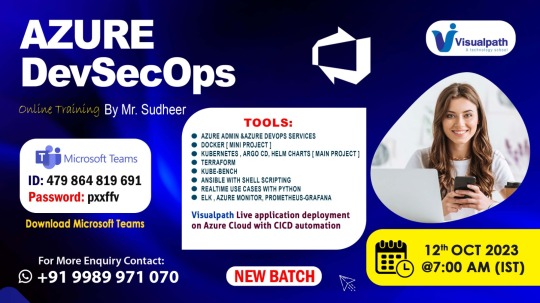
Azure DevOps Training Online New Batch
Join Now Team ID: 479 864 819 691
Password: pxxffv
Attend New Online Batch On Azure DevSecOps by Mr. Sudheer.
Batch on: 12th October @ 7:00 AM (IST).
Contact us: 099899 71070
Visit:https://www.visualpath.in/Microsoft-Azure-DevOps-online-Training.html
#Grafana#AzureDevOps#Azure#DevOps#MicrosoftAzure#Visualpath#newbatch#security#DevSecOps#azureadmin#Terraform#terragrunt#ansible#azuredevopstraining#Dockers#elk#ArgoCD#HelmCharts#SHELLSCRIPTING#azuremonitor#prometheus#OWASP#continersecurity#sonarqube#gileaks#softwaretraining#traininginstitute#newtechnology#trendingcourse
0 notes
Text
Explore the ultimate roadmap to fortify your Azure DevOps environment with Microsoft's cutting-edge security measures. 🔒
✨ Discover how to protect your projects, data, and workflows from potential threats and vulnerabilities.
1 note
·
View note
Text
How Python Powers Scalable and Cost-Effective Cloud Solutions

Explore the role of Python in developing scalable and cost-effective cloud solutions. This guide covers Python's advantages in cloud computing, addresses potential challenges, and highlights real-world applications, providing insights into leveraging Python for efficient cloud development.
Introduction
In today's rapidly evolving digital landscape, businesses are increasingly leveraging cloud computing to enhance scalability, optimize costs, and drive innovation. Among the myriad of programming languages available, Python has emerged as a preferred choice for developing robust cloud solutions. Its simplicity, versatility, and extensive library support make it an ideal candidate for cloud-based applications.
In this comprehensive guide, we will delve into how Python empowers scalable and cost-effective cloud solutions, explore its advantages, address potential challenges, and highlight real-world applications.
Why Python is the Preferred Choice for Cloud Computing?
Python's popularity in cloud computing is driven by several factors, making it the preferred language for developing and managing cloud solutions. Here are some key reasons why Python stands out:
Simplicity and Readability: Python's clean and straightforward syntax allows developers to write and maintain code efficiently, reducing development time and costs.
Extensive Library Support: Python offers a rich set of libraries and frameworks like Django, Flask, and FastAPI for building cloud applications.
Seamless Integration with Cloud Services: Python is well-supported across major cloud platforms like AWS, Azure, and Google Cloud.
Automation and DevOps Friendly: Python supports infrastructure automation with tools like Ansible, Terraform, and Boto3.
Strong Community and Enterprise Adoption: Python has a massive global community that continuously improves and innovates cloud-related solutions.
How Python Enables Scalable Cloud Solutions?
Scalability is a critical factor in cloud computing, and Python provides multiple ways to achieve it:
1. Automation of Cloud Infrastructure
Python's compatibility with cloud service provider SDKs, such as AWS Boto3, Azure SDK for Python, and Google Cloud Client Library, enables developers to automate the provisioning and management of cloud resources efficiently.
2. Containerization and Orchestration
Python integrates seamlessly with Docker and Kubernetes, enabling businesses to deploy scalable containerized applications efficiently.
3. Cloud-Native Development
Frameworks like Flask, Django, and FastAPI support microservices architecture, allowing businesses to develop lightweight, scalable cloud applications.
4. Serverless Computing
Python's support for serverless platforms, including AWS Lambda, Azure Functions, and Google Cloud Functions, allows developers to build applications that automatically scale in response to demand, optimizing resource utilization and cost.
5. AI and Big Data Scalability
Python’s dominance in AI and data science makes it an ideal choice for cloud-based AI/ML services like AWS SageMaker, Google AI, and Azure Machine Learning.
Looking for expert Python developers to build scalable cloud solutions? Hire Python Developers now!
Advantages of Using Python for Cloud Computing
Cost Efficiency: Python’s compatibility with serverless computing and auto-scaling strategies minimizes cloud costs.
Faster Development: Python’s simplicity accelerates cloud application development, reducing time-to-market.
Cross-Platform Compatibility: Python runs seamlessly across different cloud platforms.
Security and Reliability: Python-based security tools help in encryption, authentication, and cloud monitoring.
Strong Community Support: Python developers worldwide contribute to continuous improvements, making it future-proof.
Challenges and Considerations
While Python offers many benefits, there are some challenges to consider:
Performance Limitations: Python is an interpreted language, which may not be as fast as compiled languages like Java or C++.
Memory Consumption: Python applications might require optimization to handle large-scale cloud workloads efficiently.
Learning Curve for Beginners: Though Python is simple, mastering cloud-specific frameworks requires time and expertise.
Python Libraries and Tools for Cloud Computing
Python’s ecosystem includes powerful libraries and tools tailored for cloud computing, such as:
Boto3: AWS SDK for Python, used for cloud automation.
Google Cloud Client Library: Helps interact with Google Cloud services.
Azure SDK for Python: Enables seamless integration with Microsoft Azure.
Apache Libcloud: Provides a unified interface for multiple cloud providers.
PyCaret: Simplifies machine learning deployment in cloud environments.
Real-World Applications of Python in Cloud Computing
1. Netflix - Scalable Streaming with Python
Netflix extensively uses Python for automation, data analysis, and managing cloud infrastructure, enabling seamless content delivery to millions of users.
2. Spotify - Cloud-Based Music Streaming
Spotify leverages Python for big data processing, recommendation algorithms, and cloud automation, ensuring high availability and scalability.
3. Reddit - Handling Massive Traffic
Reddit uses Python and AWS cloud solutions to manage heavy traffic while optimizing server costs efficiently.
Future of Python in Cloud Computing
The future of Python in cloud computing looks promising with emerging trends such as:
AI-Driven Cloud Automation: Python-powered AI and machine learning will drive intelligent cloud automation.
Edge Computing: Python will play a crucial role in processing data at the edge for IoT and real-time applications.
Hybrid and Multi-Cloud Strategies: Python’s flexibility will enable seamless integration across multiple cloud platforms.
Increased Adoption of Serverless Computing: More enterprises will adopt Python for cost-effective serverless applications.
Conclusion
Python's simplicity, versatility, and robust ecosystem make it a powerful tool for developing scalable and cost-effective cloud solutions. By leveraging Python's capabilities, businesses can enhance their cloud applications' performance, flexibility, and efficiency.
Ready to harness the power of Python for your cloud solutions? Explore our Python Development Services to discover how we can assist you in building scalable and efficient cloud applications.
FAQs
1. Why is Python used in cloud computing?
Python is widely used in cloud computing due to its simplicity, extensive libraries, and seamless integration with cloud platforms like AWS, Google Cloud, and Azure.
2. Is Python good for serverless computing?
Yes! Python works efficiently in serverless environments like AWS Lambda, Azure Functions, and Google Cloud Functions, making it an ideal choice for cost-effective, auto-scaling applications.
3. Which companies use Python for cloud solutions?
Major companies like Netflix, Spotify, Dropbox, and Reddit use Python for cloud automation, AI, and scalable infrastructure management.
4. How does Python help with cloud security?
Python offers robust security libraries like PyCryptodome and OpenSSL, enabling encryption, authentication, and cloud monitoring for secure cloud applications.
5. Can Python handle big data in the cloud?
Yes! Python supports big data processing with tools like Apache Spark, Pandas, and NumPy, making it suitable for data-driven cloud applications.
#Python development company#Python in Cloud Computing#Hire Python Developers#Python for Multi-Cloud Environments
2 notes
·
View notes